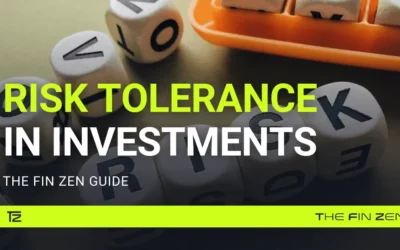The Bear market is that magical moment in which investors’ dreams are shattered while the pessimistic prophecies of those who have not invested come true. “I told you so!” they will say, “that was logical!” they will continue, rising to masters of market analysis as if they had predicted the impossible. In reality, the bear market is not a catastrophe that someone has to prophesy, nor a rare event, but it is a phase in which the market reduces the excesses that formed in the previous bull run and realigns itself with macroeconomic conditions. It is undoubtedly a painful phase, but if faced with the right mindset, it turns out to be the most formative experience for an investor, much more than all the courses that those “I told you so” prophets try to sell to teach you how to escape it.
Bear Market 101: What Investors Need to Know
The market is made up of cycles, just as the economy undergoes periods of expansion and recession, the market is a pendulum that oscillates between bullish and bearish phases. The Bear Market is that natural market phase in which the prices of financial assets fall sharply for a more or less long period and is opposed to the Bull Market. Typically, the bear market is “officialized” when prices drop by 20% compared to the highs of that period (in traditional markets). Basically, when most of the damage has already been done. This type of market can be triggered by a number of factors, including economic recessions, restrictive monetary policies, geopolitical turmoil, or industry-specific issues, and those who have followed the market during 2022 have had the opportunity to witness all of these events in contemporary; how lucky!
As imaginable, this market phase does not warn of its arrival but drags the investor towards the abyss without him realizing it. It arrives disguised as a classic retracement, which is typically followed by a bounce during bull markets, so the investor remains at the mercy of the market as he absolutely does not want to miss the classic bounce. A rebound that, in reality, will not arrive this time. And here we are, -20% from the highs. It’s normal, it’s not an inexperienced attitude. All investors, expert or otherwise, meet this sad fate sooner or later.
How Can Investors Survive a Bear Market?
We have understood that there is no escape from the bear market, so we can only prepare to face it. Let’s see together some fun activities that can help us survive in this stressful situation:
- Take the dog for a walk;
- Make friends with other human beings who live in or near your home;
- Learn to model clay, parkour or Japanese swordsmanship.
Well yes, after all there isn’t much that can be done to address the bear market. The advice is to distract yourself from the market, let it take its course and maintain a neutral attitude towards it, as you should do during the Bull Market phases.
Keeping calm and thinking long term is the most effective strategy we can decide to adopt, it is easy to panic when you see portfolio values decreasing rapidly, but it is important to remember that financial markets are cyclical and that negative trends they don’t last forever.
It can not rain forever!
Indeed, historically, bear markets are followed by periods of recovery and growth, and investors who maintain their positions are more likely to achieve positive returns over the long term.

Under Pressure: The Cost of Tranquility in Potential Earnings
Of course, the level of detachment depends on the type of investor each of us decides to be. An aggressive investor, i.e., one who tries to beat the market, should continue to follow its dynamics, keep up to date with macroeconomic data, follow company operating results, and keep up to date with what is happening with regard to his investments. The trade-off consists precisely of giving up a bit of peace of mind in the face of potentially better performances. Don’t think that there really is anyone who doesn’t feel a minimum of concern when faced with the bear market, the skill of a good investor lies in knowing how to manage worry as best as possible. The defensive investor, i.e., the one who has no interest in following the market, will be better able to survive the bear market peacefully as long as he is satisfied with the market return (which is often higher than that of those who try to beat it, Moreover). Make your choice and consider this trade-off between peace of mind and better earnings while still taking into consideration your skills as an investor and your natural predispositions. It is obvious that an investor who has never had an interest in market dynamics must necessarily choose the path of tranquility, to avoid sinking into the temptations of the bear market by eliminating his capital. Beating the market is quite a difficult undertaking and greater effort in following the market does not automatically translate into better earnings. Remember, as Warren Buffett said: “The first rule of an investment is never lose money. And the second rule of an investment is never forget the first rule. And that’s all the rules there are.”
However, if following the market is a passion of yours, and following it even during the bearish phase does not stress you excessively, here are some tips to implement during this market phase.
Keep Expenses and Liquidity Under Control
We have assumed that you do not have 100% of your cash invested in the financial markets. In fact, I hope we don’t need to explain to you how important an emergency fund is, right? Having an emergency fund allows you not to dip into investments when an emergency occurs.
Imagine being forced to sell your assets during a bear market and consolidate a 40% loss, how dramatic! So, consider your situation and make sure your emergency fund is liquid enough. If it isn’t, keep your expenses at bay and fix this situation before investing more capital in the financial markets. However, if you have already been diligent with your emergency fund, having cash reserves on hand can also create opportunities to purchase assets at affordable prices during bear market phases.
Fly to quality
Take a look at your portfolio and try to understand if it is worth remodeling it by abandoning those unwise investments made during the euphoric phases in search of the hidden gem that would give you financial freedom. Yes, Mr. Cryptoinvestor, I am referring to you. Prefer quality assets, with solid foundations and good capitalisation, i.e. all those assets that represent established companies that will undoubtedly manage to survive until the next bullish phase of the market.
Depending on the type of investor you are, you can decide whether to try to identify the company that guarantees a better return than the market or to expose yourself to the general market through the purchase of instruments that replicate a market index. It is therefore up to you to decide whether to diversify your portfolio or centralize the risk on specific assets, which you can finally include in your portfolio at moderate prices.
A bear market can offer unique opportunities for aggressive investors. During market downturns, many stocks and other financial assets can be undervalued or traded at relatively cheap prices. Investors who are able to identify these opportunities and exploit them can earn excellent returns when the bull market returns. However, it is important to know how to conduct diligent research and select high-quality assets with strong underlying fundamentals. Not a task for everyone.
Don’t try to guess when the market bottom will be
Market timing is a losing battle and no one knows in advance what the market bottom is: there is no point in speculating or putting your money at risk. Although it is proven that the Lump Sum often guarantees better returns over time, the advice to peacefully survive the bear market phase is to inject liquidity little by little, at a constant pace, up to a certain period. You define the methods, but once defined, follow them with discipline and trust the power of compound effect, or you will once again end up at the mercy of market waves and in the grip of uncertainty. Having liquidity to invest will make you experience phases of further declines more peacefully, as you are aware of being able to take advantage of the lower prices.
Unveiling the Truth: The Mindset Secret
As you may have guessed, these tips are quite banal, there are no tips to put into practice during the bear market period in particular, but the investor’s attitude must be balanced during each phase of the market. These technical tips should be implemented at all times and risky decisions made in the throes of euphoria should not be allowed in the Bull Market either. As Warren Buffet teaches us, investing in financial markets is a mind game rather than a jumble of data, numbers and tickers, only those who manage to control their emotions will be able to peacefully survive the bear market.
Too often, those who operate on the market exceed the threshold that separates the category of investors from that of bettors. The market could become a game room in which the investor lets himself be carried away by his emotions, adopting speculative behavior in search of an immediate profit. Rather than basing decisions on fundamental assessments, financial market bettors rely on activities such as day trading or scalping, basing their decisions on imaginary lines painted on graphs to justify their questionable bad decisions, ending up giving away commissions to the broker and money in the market (obviously, we don’t want to discredit the work of the professional trader, which is based on much more).
The Prime Villain: Fighting Back Against Revenge Trading
The bear market causes a reduction in capital, the uneducated investor risks exceeding the demarcation threshold between the investment and the bet, usually reacting by trying to quickly recover losses through high-risk speculative operations. This is the widespread phenomenon of Revenge Trading, and if the trading activity is already very little suited to the figure of the intelligent investor, the revenge trader finds himself exactly the opposite.
In fact, in the vast majority of cases, this emotional reaction translates into further losses and seriously compromises the “investor’s” capital.
The Art of Balance: Balancing Distraction and Financial Focus
Being an investor means being aware of facing Bear Market phases. Developing a mental attitude that allows us to accept the cyclicality of the market and select quality securities will allow us to experience the market phases more calmly, whether bull or bear.
In fact, the advice that, at The Fin Zen, we want to provide the reader is to develop an adequate mindset, regardless of the market phase. Giving the right importance to money and having passions and hobbies distant from the financial world is essential to avoid falling into the traps that the financial markets set out at all times. The market is a dangerous place, an ocean full of sharks, a gigantic Call Of Duty Free for All lobby where everyone is waiting for your misstep to grab your savings. So, be cautious and patient. Always act sensibly, and do not let yourself be guided by fear in the downturn and by euphoria in the upturns. Maintaining a balanced and clear-headed attitude at every stage of the market is essential to successfully navigating the financial markets and will be the only way to be able to build a safe and prosperous financial future over the years.












